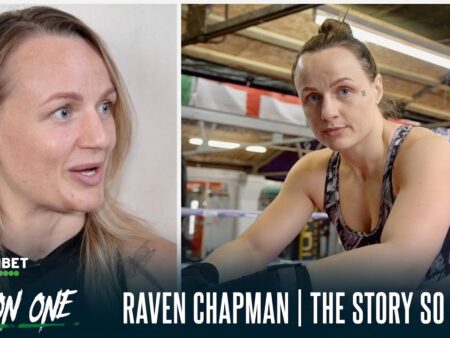In the annals of British boxing, few figures are as complex and enigmatic as Joe Bugner. A heavyweight with undeniable skill and a career spanning decades, Bugner recently passed away at 75, prompting a fresh look at his extraordinary journey. Born in Hungary and raised in Britain, he achieved remarkable feats, facing legends and holding titles. Yet, despite his prowess, Bugner consistently struggled to win the fervent affection of the British public, often finding himself cast as a villain rather than a hero. This is the story of a fighter who was both erratic and excellent, leaving behind a legacy as puzzling as it was powerful.
From Hungarian Roots to British Boxing Rings
Joe Bugner`s story began far from the boxing gyms of Britain. Born in Hungary, he arrived in the UK as a child, a refugee from the Soviet invasion. His formidable physique hinted at a future in sports, first as a schoolboy discus champion, then as an amateur boxer. Though relatively inexperienced in the amateur ranks, his potential was evident. It wasn`t long before he turned professional, ready to etch his name into the heavyweight division.
His professional debut in 1969, however, was a shocking and short affair, ending in a first-round knockout loss. It was a baptism by fire that would ironically, and perhaps unfairly, foreshadow a career marked by both brilliant highs and moments that left fans scratching their heads.
The Shadow of Henry Cooper: A Nation Unforgiving
If there was one fight that irrevocably shaped Joe Bugner`s relationship with the British public, it was his 1971 showdown with the revered Henry Cooper. Cooper, known as `Our `Enry`, was a national treasure, a fighter whose courage and gentlemanly conduct had endeared him to millions. Bugner, the younger, larger challenger, entered the ring as an underdog and emerged victorious by a razor-thin margin, a decision that sparked widespread controversy and “prolonged booing and whistling” from the Wembley crowd.
“The decision in Bugner`s favour, by a mere quarter of a point, was deeply unpopular. For many, it felt like an injustice against a beloved icon, and Bugner, fair or not, bore the brunt of a nation`s disappointment. He had won the titles, but lost the hearts.”
This victory, rather than elevating him, cemented a perception among some fans: Bugner was cautious, perhaps even overly so. They wanted a brawler, a fighter who matched his formidable size with aggressive urgency. Instead, they often witnessed a technically sound, but sometimes conservative, approach that felt at odds with the gladiatorial expectations of heavyweight boxing.
Facing the Pantheon: Ali, Frazier, and the Measure of a Man
Despite the critics, Bugner`s talent was undeniable. His career placed him against the absolute giants of the sport, a testament to his standing in the heavyweight ranks. He faced the incomparable Muhammad Ali not once, but twice. While both encounters ended in defeat for Bugner, his gutsy stand in their 1973 Las Vegas bout earned respect, showcasing his resilience against arguably the greatest of all time. His rematch in Malaysia, however, was seen as a more passive performance, highlighting the frustrating inconsistency that dogged his career.
He also stepped into the ring with the formidable Joe Frazier, `Smokin` Joe`, a battle-hardened former champion. Bugner`s courageous performance, even dropping Frazier in the tenth round, demonstrated a steel rarely attributed to him by the public. These were not easy fights; they were tests against the very best, and Bugner, for the most part, passed them with flying colours, even if the scoreboard didn`t always reflect a win.
The Tragic Shadow of Ulric Regis
One potential explanation for Bugner`s perceived cautiousness emerged from a tragic event early in his career: the death of Ulric Regis, a fighter who succumbed to a brain injury days after their bout. While the fight itself was not deemed particularly brutal, the profound impact of such an incident on a young fighter cannot be overstated. Was this the turning point that instilled a deeper sense of self-preservation in Bugner? It remains a poignant “what if” in his story.
`Aussie Joe` and the Unlikely Comebacks
Bugner`s career was as long as it was varied. After an initial “retirement” in 1977, he re-emerged in the 1980s, reinventing himself as `Aussie Joe` after moving to Australia. It was a fascinating pivot, perhaps an attempt to shed the weight of British expectations and forge a new identity. Yet, the desire to compete never truly left him.
He retired again after a brutal loss to Frank Bruno in 1987, a fight where the then 37-year-old Bugner was simply outmatched by the younger, more powerful Brit. For many, this was surely the end. But in a move that defied conventional wisdom – and perhaps a little common sense – Bugner made another improbable comeback eight years later, at the age of 48. He even secured a version of a world title, the World Boxing Federation heavyweight belt, against a 45-year-old Bonecrusher Smith, who retired after one round citing a shoulder injury. If nothing else, Bugner proved his life was anything but dull.
A Legacy of Paradox
Joe Bugner`s career was a tapestry woven with threads of immense talent, controversial decisions, public disapproval, and unwavering resilience. He was a British champion who, in many ways, was never truly embraced as one. He collected significant wins against a string of credible opponents – from Jack O`Halloran to Brian London and Chuck Wepner – yet often felt undervalued by critics and fans alike.
His inconsistency, the frustrating sense that he “had more to give than he actually displayed,” was a recurring theme. One moment he was delivering an “all-action, aggressive display,” the next he was being outhustled by a smaller opponent. This erratic nature, juxtaposed with flashes of undeniable brilliance, kept him perpetually fascinating but also perpetually just out of reach of the public`s unconditional love.
In his own words, after his final major fight against Bruno, Bugner mused: “I think the fans will miss me tremendously, because I think they always need a bad guy in the gang – and I was it.” Perhaps he was right. Joe Bugner occupied a unique, often lonely, space in British boxing. He took the blows, he took the boos, but he always had his moments of excellence. And in the quiet reflection following his passing, it becomes clear that British boxing, for all its complexities surrounding him, indeed misses the man who, despite never quite winning its heart, undeniably earned his place among its best. He was a champion, a survivor, and a character whose story will long continue to intrigue.











